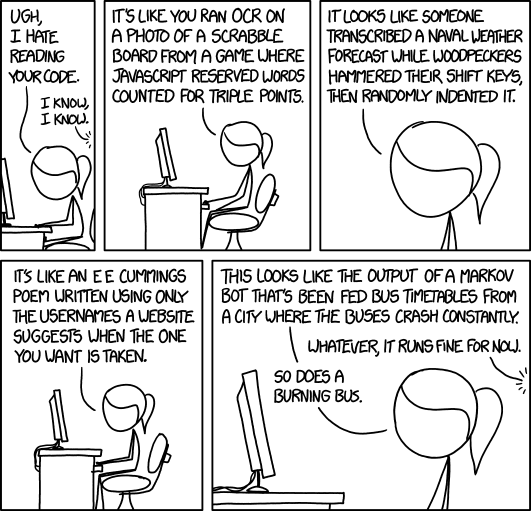Gertrude Trump
For nearly a year, I've been describing aspects of Donald Trump's rhetorical style — see e.g. "Trump's eloquence" (8/5/2015), "More Flesch-Kincaid grade-level nonsense" (10/23/2015), "Donald Trump's repetitive rhetoric" (12/5/2015), "Trump's rhetorical style" (12/26/2015), "Trump the Thing Explainer?" (3/19/2016), "Elaborate interiors and plain language" (6/3/2016). Behind those observations was a question: where else have I seen or heard this pointillistic, repetitive style?
This morning, I suddenly realized that I've been Doing It Wrong. In transcribing his speeches, I've deployed punctuation and line divisions to represent the structure. But if I remove most of that visual prosody, suddenly the stylistic model leaps off the page. Consider this clip from his recent rally in Atlanta 6/15/2016:
You know the Republicans honestly folks our leaders our leaders have to get tougher. This is too tough to do it alone but you know what I think I'm gonna be forced to. I think I'm going to be forced to. Our leaders have to get a lot tougher. And be quiet, just please be quiet don't talk please be quiet. Just be quiet to the leaders. Because they have to get tougher they have to get sharper they have to get smarter we have to have our Republicans either stick together or let me just do it by myself I'll do very well. I'm going to do very well. OK? I'm going to do very well.
A lot of people thought I should do that anyway. But I'll just do it very nicely by myself I think you're going to have a very good result I think we'll be very happy I'll run as a Republican. Just I don't know you know the endorsement thing by the way I've gotten tremendous endorsements but if I don't get them that's OK.
Read the rest of this entry »

